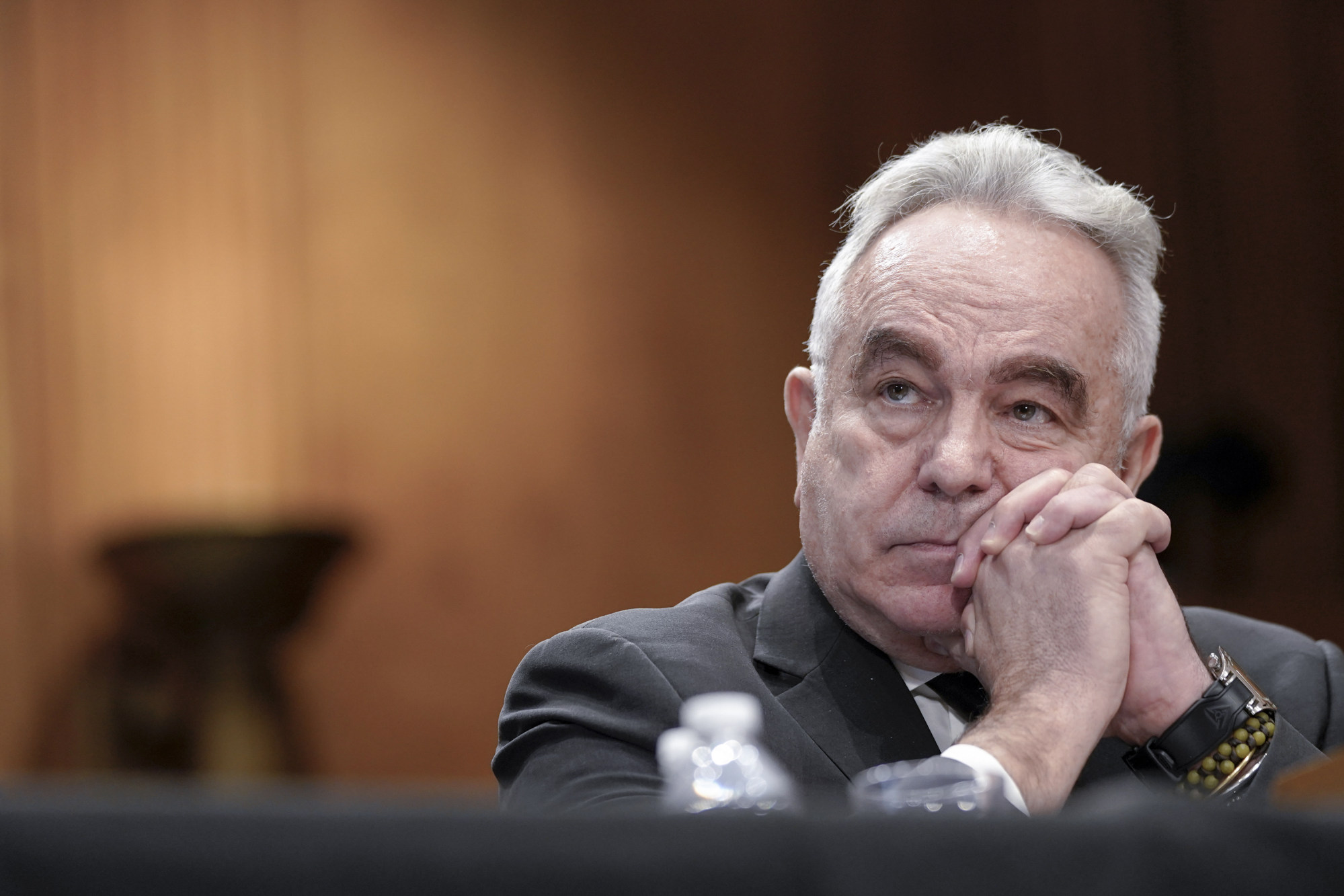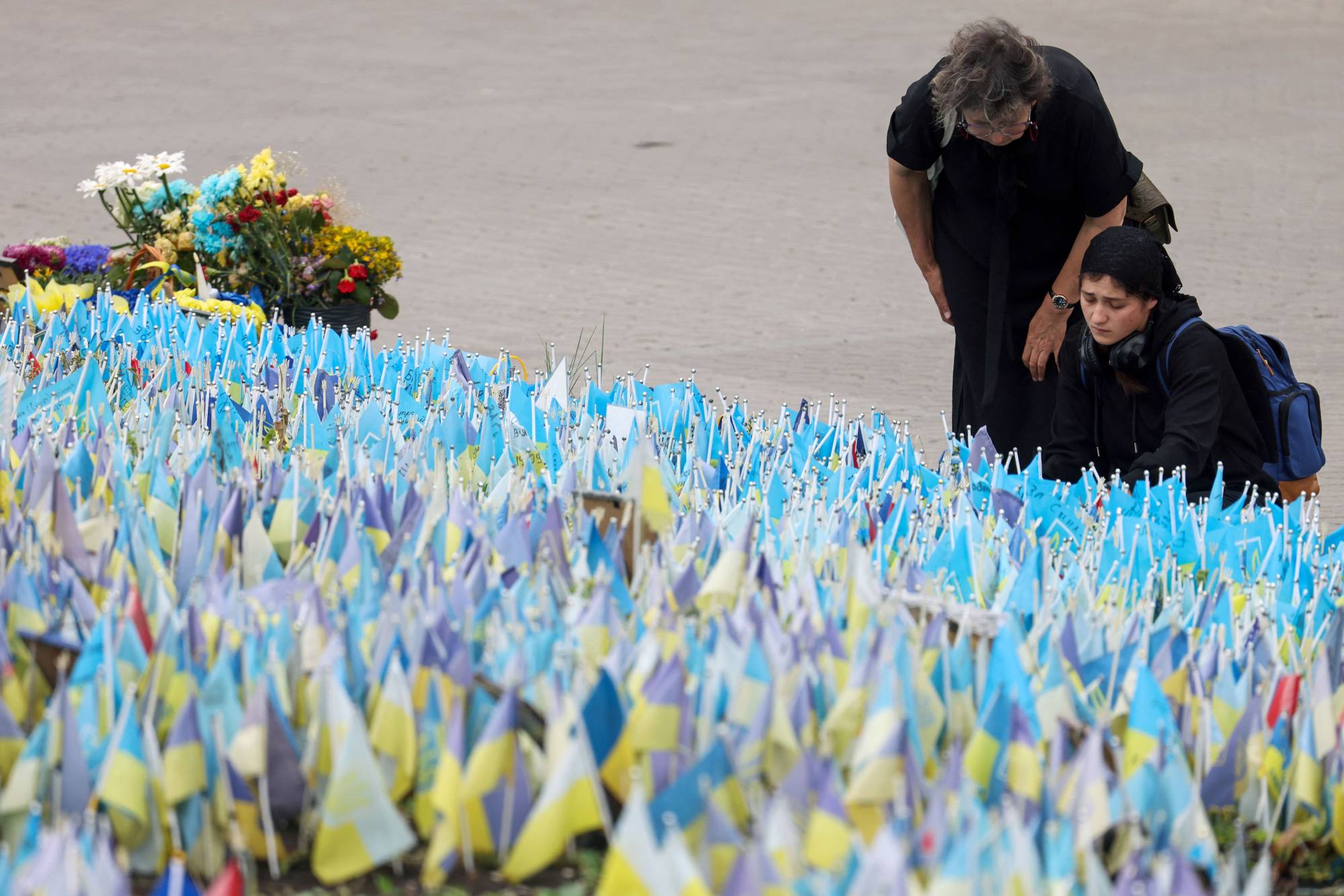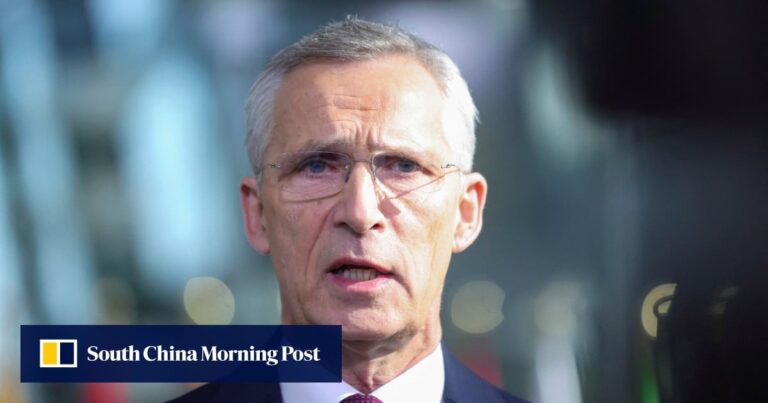Speaking during a visit to Washington, Secretary General Stoltenberg previewed the positions NATO leaders are expected to take at the NATO summit to be held in the US capital from July 9-11.
“But the reality is that China is fuelling the biggest armed conflict in Europe since World War II. And at the same time, China wants to maintain good relations with the West.”
By working together, European and Asian allies “can uphold the rules-based international order and defend our common values.”
China has repeatedly denied the accusations, saying it does not supply arms to either side and maintains strict control over dual-use weapons.
Beijing also insists its right to conduct normal economic and trade exchanges with all countries, including Russia, should not be impeded, and has urged Washington to stop blaming China for U.S. supplies of arms to Ukraine.
“NATO is a product of the Cold War and is the world’s largest military power. NATO should self-reflect on what role it played in the Ukraine crisis, instead of arbitrarily slandering and attacking China,” Chinese foreign ministry spokesman Lin Jian said at a regular briefing in Beijing on Tuesday.
“China is neither the initiator nor a party to the Ukraine crisis. China’s objectivity, impartiality and constructive role is widely recognized by the international community,” he said.
“We urge all parties involved to stop shifting the blame and widening discord, not add fuel to the fire or foment factional antagonism, but to take practical steps to resolve the crisis politically.”
Since Russia’s invasion of Ukraine in February 2022, NATO has strengthened cooperation with Indo-Pacific countries.

A veteran U.S. diplomat said he had briefed his European counterparts “in as much detail and specifics as possible” about China’s support for Russia.
Campbell noted the importance of the participation of the four Indo-Pacific nations at the NATO summit in July, saying their participation will allow European leaders to hear their Indo-Pacific partners’ views on how the region is “connected to Europe more than ever before.”
White House National Security Council spokesman John Kirby said Monday he was concerned about the impact of rapprochement between Russia and North Korea on Ukraine and the wider Indo-Pacific region.
“We know that North Korean ballistic missiles are still being used to strike targets in Ukraine, but there may be some correlation here that could have implications for security on the Korean peninsula,” Kirby said.
Kirby condemned China’s “provocative, reckless and unnecessary” actions, saying they “could lead to a much larger, much more violent incident.”
As for Ukraine, Stoltenberg asserted on Monday that the war showed that European security is global, not regional: “We also know that Russia has support from China and elsewhere.”
China’s embassy in Washington responded to the remarks in an emailed statement to The Post, saying the NATO secretary-general “should stop making such inflammatory remarks and play a constructive role, rather than opposing a political solution to the crisis.”
“Promoting peace and development is the consensus of Asia-Pacific countries. The United States needs to respect this and do better for peace and stability, rather than bringing faction-to-fact rivalry and conflict into the Asia-Pacific region,” embassy spokesman Liu Pengyu said.

“I can now reveal that more than 20 allies will be spending at least 2 percent of their GDP on defense this year,” Stoltenberg said. NATO currently has 32 member countries.
“This is a good thing for Europe and a good thing for the United States, especially since much of this extra money will be spent in the United States,” he added, noting that more than $140 billion in European defense acquisitions over the past two years have come from U.S. companies.
Stoltenberg said it was “foolish” for North America and Europe to remain “divided” in a world where “we fear not only Russia but also the impact that China may have on our security.”
According to the White House, Biden “welcomed the steps NATO allies are taking to support Ukraine and deepen cooperation, including in the Indo-Pacific region.”
On Tuesday, the NATO secretary-general is due to meet with U.S. Secretary of State Antony Blinken at the State Department.
Stoltenberg is also scheduled to visit Capitol Hill to meet with members of the Senate Foreign Relations Committee, Senate Minority Leader Mitch McConnell and members of the Senate NATO Oversight Team.

